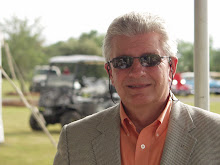It has been a while since I posted anything here, which would make one think there isn't much "living" going on in Fairhope. Nothing could be farther from the truth, in fact, it is precisely the "living" that has been in the way of writing. So a quick rundown would be in order. Since February, I have been directly involved in the Alabama Coastal Foundation Gumbo Cook-off, the Pt. Clear Taste of Rotary fundraiser, the Fairhope Rotary International Steak Cook-off, Eastern Shore Chamber volunteer appreciation, hosted an exchange group from Sweden, along with various other routine events such as the monthly artwalk, Thursday afternoon Fairhope Philosophical Society, and so on. By any measure, it has been a full 3 months.
But on April 20, all of us along the gulf coast woke up to the prospect that our beautiful place by the ocean could forever be changed in the worst possible way. The first days after the explosion and loss of life on the drilling rig, Deep Water Horizon, cast a pall over the entire region. You could feel the sense of loss and depression in everyone you encountered. You could read it on their faces. Having lived through many hurricanes in my 50+ years, I like many others, resolved to meet this threat with the same preparedness.
But unlike a hurricane that blows in, wreaking destruction and then slowly dying off, leaving a calm that is surreal but serene, a sort of natural cleansing, this is something entirely different. This is wrought by man, more like a war, but not just a war against our neighbors, rather a war against ourselves. Like landmines that continue to maim and kill long after the war is over, the effects of this will linger on for decades or longer.
It is interesting to watch how we humans deal with the inevitable. I watch the news reports as the reporters struggle to cover all the myriad of angles. I see Ralph, a third generation seafood purveyor, interviewed about the run on seafood by customers new and old. "Get it before it is gone", becomes the mantra. I suddenly have a craving for a shrimp and oyster poboy or grilled tuna. Bring an order of crab claws, please. Amazing how precious our world becomes when we are threatened with losing it.
It is times like these, when the overwhelming power of the big corporations and government agencies swarm in, that you are faced with the realization that these entities, in whom we put so much faith to look out for our interests, so often can't or won't do what we expect them to do. It is easy for the average person to feel isolated, and in some ways captive in your own land. Fortunately, we have numerous citizens groups who have been working for years trying to improve the quality and sustainability of the marvelous ecosystem that is ours along the Alabama Coast. The good work they have done over the years, the constituencies they have created, and their knowledge of the environment have earned them a place at table where major decisions are made about how to manage the response.
The Alabama Coastal Foundation, Mobile Baykeepers, and the Mobile Bay National Estuary Program, are among the main players in providing valuable information to the Coast Guard, BP, and DHS. In addition they are mobilizing volunteers, organizing group clean-ups and disseminating value, correct information. Too often people have ignored the efforts of these groups to call attention and spur citizens to action, and yet suddenly when there is a crisis, the masses wake up. Thousands are joining fan pages, volunteering and holding fundraisers. And we welcome them and applaud their willingness to participate. But I wonder, how long before they fall back into slumber and become complacent?
This is my biggest fear as the days and weeks pass since we were blasted awake. Daily we watch the reports and our hopes and anxieties ebb and flow with the tides. We are more attuned to the reports of winds and currents and what defensive measures are being taken. We see the maps depicting the "heavy crude slick", the "light crude sheen" and the "area of uncertainty". And still the oil does not come. Livelihoods are being ruined, tourists are canceling plans to visit, and still the oil does not come. But we know it is there, lurking on top and beneath the surface.
Every day I feel compelled to walk down to the bluff and look out across the bay, to sear into my memory the way it looks, today and pray that it will stay that way. And I wait.
Tuesday, May 18, 2010
Subscribe to:
Posts (Atom)
